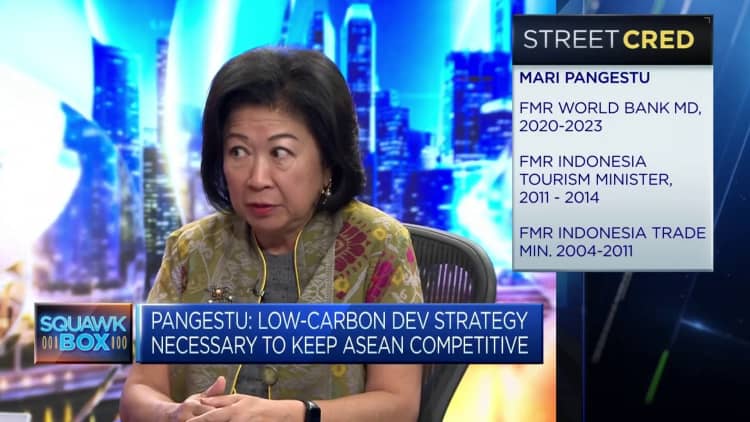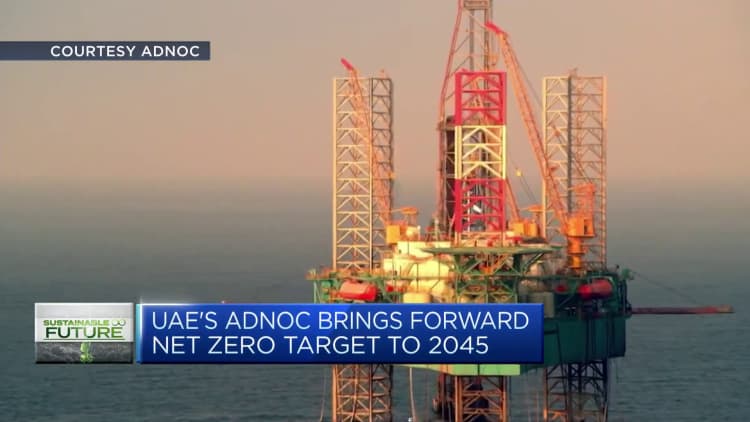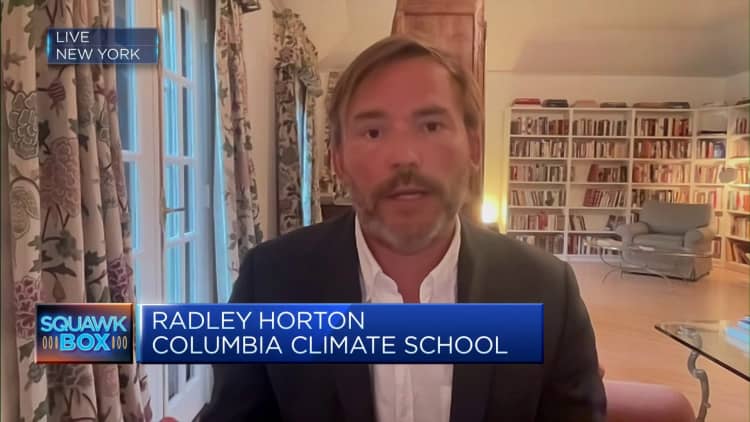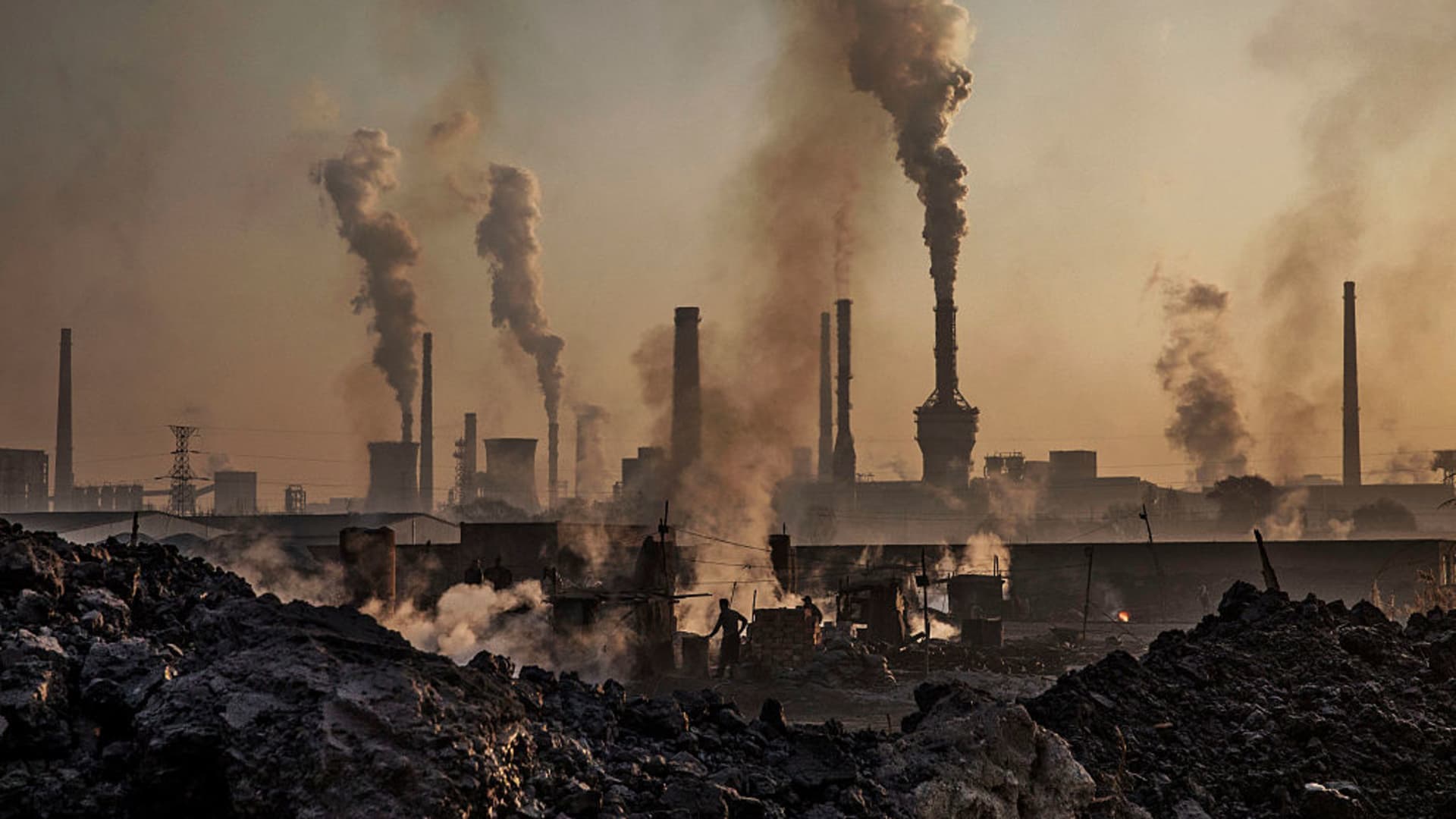Smoke billows from an unauthorized steel factory, foreground, on November 4, 2016 in Inner Mongolia, China. To meet China’s targets to slash emissions of carbon dioxide, authorities are pushing to shut down privately owned steel, coal, and other high-polluting factories scattered across rural areas. (Photo by Kevin Frayer/Getty Images)
Kevin Frayer | Getty Images News | Getty Images
Developing nations will need more than $1 trillion each year to make significant progress in climate transition, according Mari Pangestu, a former World Bank official.
“The estimate is like $1 [trillion] to $3 trillion a year for developing countries to be able to transition,” she told CNBC’s “Squawk Box Asia” on Thursday.
The lack of funding has made it difficult for those countries to reduce their high carbon emissions and shift to clean energy, Pangestu added. This has led to tensions between developing nations and the developed world, which are pushing for more progress in climate related issues.
“This debate is going to continue unless developed countries can see that this is about development and climate — not just about climate,” Pangestu, a former trade and tourism minister for Indonesia, said.
“And that has been the source of tension. You can’t separate the two,” she added, underlining the “key word is actually — transition.”
“How do you transition from the high emission now to clean energy? It will require us to have resources.”
This was “part of the bone of contention,” for the lack of progress made in the recently concluded Group of 20 climate ministers meeting in India, Pangestu said.

The talks in late July wrapped up without consensus on crucial matters to address the climate crisis such as the issue of financing to support developing countries, the document showed.
India’s climate change minister Bhupender Yadav, who chaired the meeting, acknowledged there had been “some issues about energy, and some target-oriented issues.”
Sharp criticism
The July climate meeting was seen as a chance for the world’s biggest polluters to take concrete steps ahead of a G20 leaders’ meeting in September in New Delhi and the COP28 Summit in the United Arab Emirates in December.
The failure to reach a deal drew withering criticism from environmental activists.
“Europe and North Africa are burning, Asia is ravaged with floods yet G20 climate ministers have failed to agree on a shared direction to halt the climate crisis which is escalating day by day,” said Alex Scott of climate change think-tank E3G.
“Reports of Saudi Arabia and China stifling the forum’s political space to even discuss a new direction on the energy transition fly in the face of their claims of defending the interests of developing countries,” he added.

China rejected reports it had obstructed climate discussions at the G20 climate meeting, saying “relevant reports totally run counter to the facts.”
The Ministry of Foreign Affairs insisted the meeting “achieved positive and balanced outcomes.”
“However, some countries introduced geopolitical issues as an obstruction and the meeting failed to adopt a communique. China finds it regrettable,” the ministry said without elaborating.
‘Scale and urgency’
There’s a “scale and urgency” to address the climate crisis, said Pangestu, adding it requires greater effort from all stakeholders.
“Part of that will have to come from countries’ own resources,” she noted. “Also part of it has to come from multilateral development banks and other sources, which are going to reduce the cost and risks — so that you can get private sector to come in.”

Pangestu argued that if developed nations want to move away from fossil fuels and “retire coals plants early,” more support should be provided to developing countries.
“What South Africa and Indonesia have done more recently on this particular issue is say: ‘That’s fine and well, you want us to get out early’ — but who’s going to fund the cost of getting out early?” she asked.
“These are private companies, you have to also compensate them. There’s a legal issue, financial issue. So this is where we need to really get into the policies and the reforms.”

